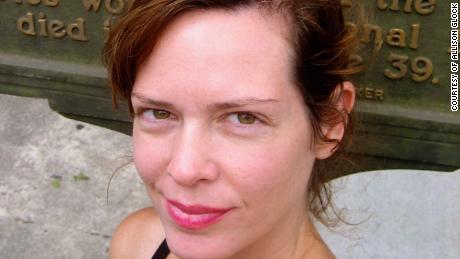
Along with her sister, who is 18, she's moved back home from school, school that is now over in a practical sense for the foreseeable future.
My girls, like countless of the world's children, have been wrenched from routines and friends, the architecture of their lives dismantled and replaced with a return to the orbit of parents who themselves can't say what's coming, our ability to comfort muted and undermined by the speeding train of the virus and the whirlwind of devastating news.
My kids read the papers, the breaking alerts that flash across their phones. They personally know people who are nurses and doctors in the most perilous wards. They know people who are sick. They feel the dismay in the air. Their suffering is not unique (nor does it compare to the horrors unfolding for so many), but it is the suffering in front of me, and so I do what I can to ease it, the only job that feels worth doing at the moment.
I tell my 19-year-old that I understand her feeling lost, empty. I remind her how lucky we are. To be together. To have dogs. To love each other. To be able to hug.
I tell her I've been thinking a lot about my grandparents. How when I was her age, I'd watch them play cards, do crosswords, dance together in their cramped living room, taking care not to topple the miniature, boxy television set that was only ever turned on for baseball games.
My family comes from Appalachia. My grandparents spent their lives in a tiny house in a tiny West Virginia factory town, walking the same sidewalks, sitting on the same porches, their parents only a few houses down. They cooked Sunday suppers, sang as they hand-washed the dishes, groused and gossiped and generally found contentment in the simplest of lives, one necessarily small because of poverty and lack of opportunity.
Small as it was, that life held beauty. And I realize now, that in my own life -- winnowed and shrunk into a similar tight routine; taking walks, piecing together puzzles, teaching my girls how to make pie crust, to plant ok -- along with that beauty lives profound meaning. My grandfather served in the war. So, too, did everyone he and my grandmother knew. They'd seen death and futility and heroism and loss. They knew what mattered.
We will need to find our purpose in the minor things, I tell my daughter. The moments. Moment by moment. We will need to become more like dogs, giddily hopping into the car when we have no idea where it's heading. And in those long, vacant hours, free of clutter and busyness and traditional validation, we will have to learn how to sit with ourselves and discover the glory and meaning in that stillness. Or, at the very least, accept that tomorrow was never promised. In some ways it's no different than it always was, I explain, we just have fewer distractions to hide behind.
"But for how long?" my daughter asks, fighting back tears.
"I don't know."
I tell her I'm sorry, that I love her. I ask if she wants me to make her a grilled cheese. She shakes her head, retreats upstairs to cry, maybe. Or smoke and blow the evidence out her bedroom window. To get away from me and my hastily assembled life lessons.
I understand. Am envious, even. I'd like to cry, smoke, ball myself into a knot of grief. Instead, I take a shower, make a coffee, put on lip gloss like it matters. By the time I emerge from the bathroom, my daughters are in the yard, lying on a blanket together, reading.


No comments:
Post a Comment